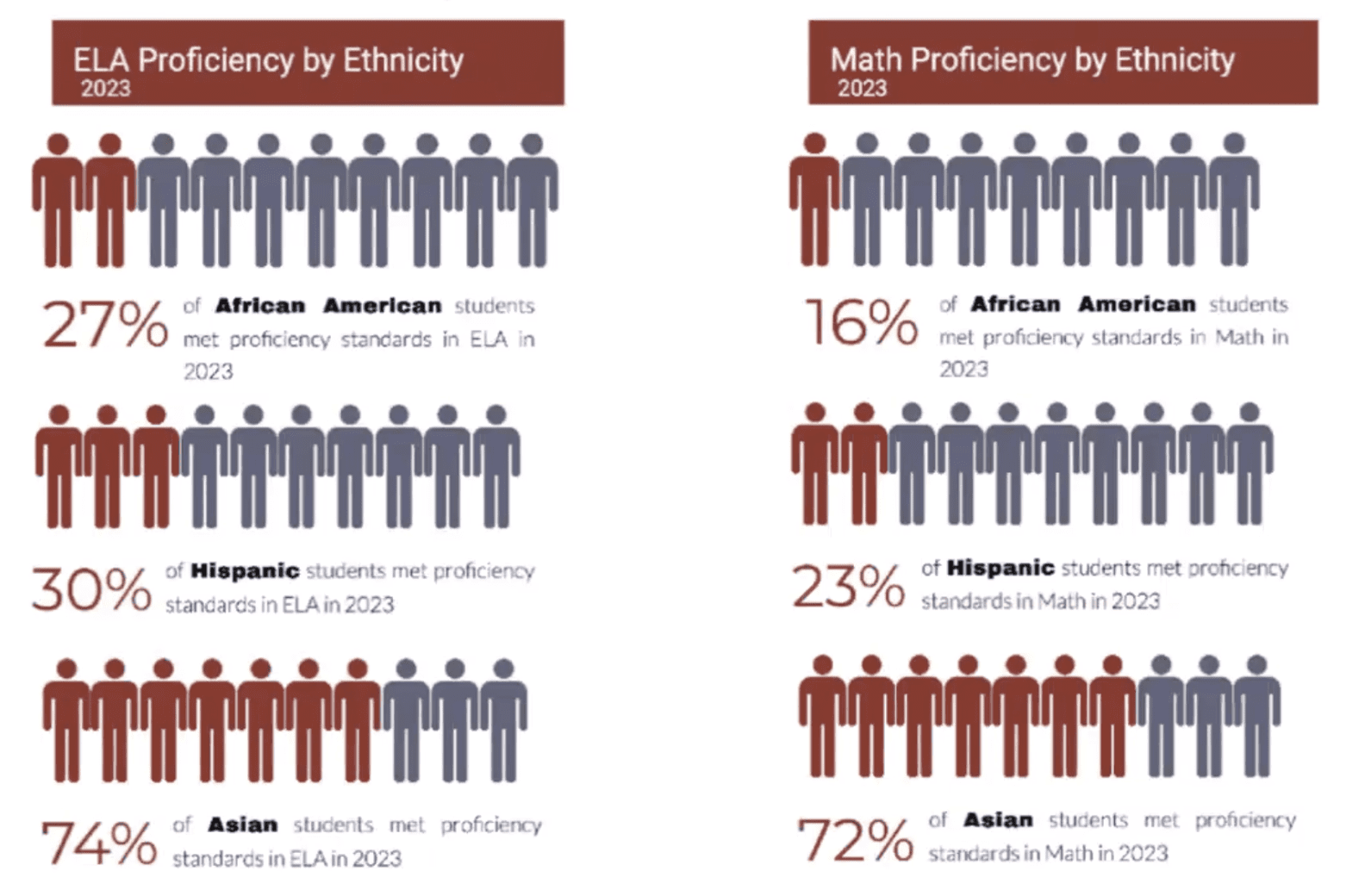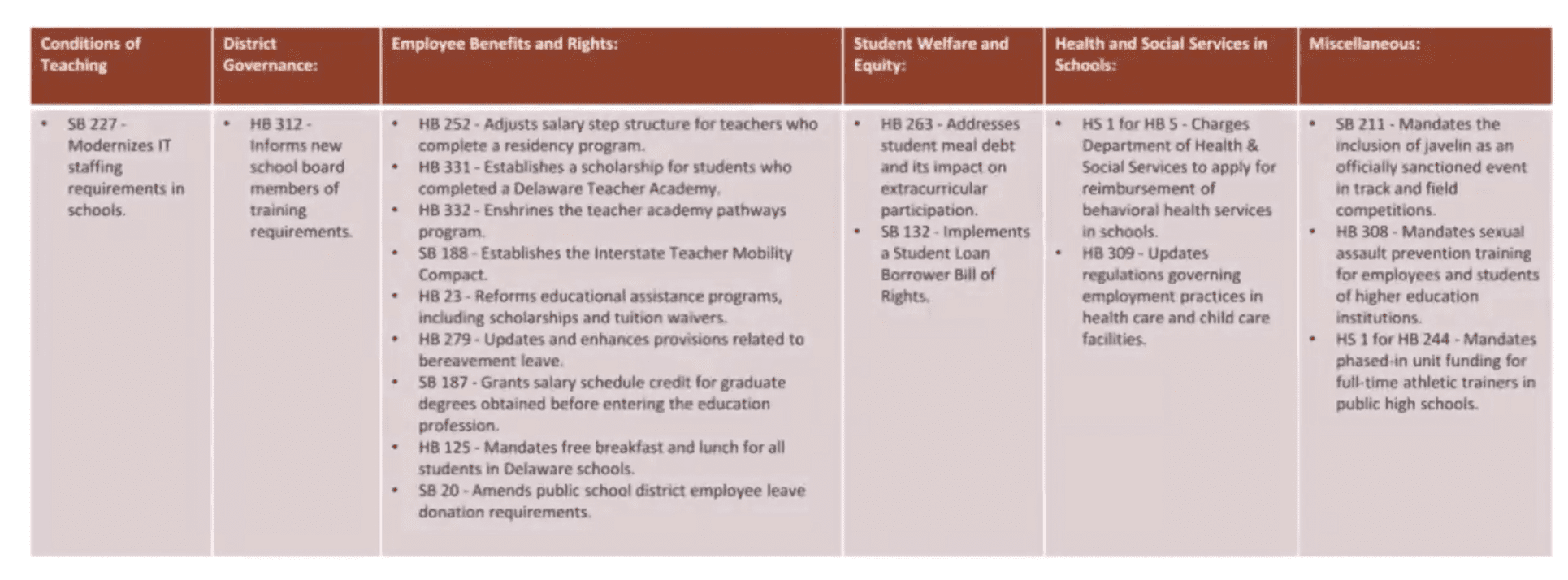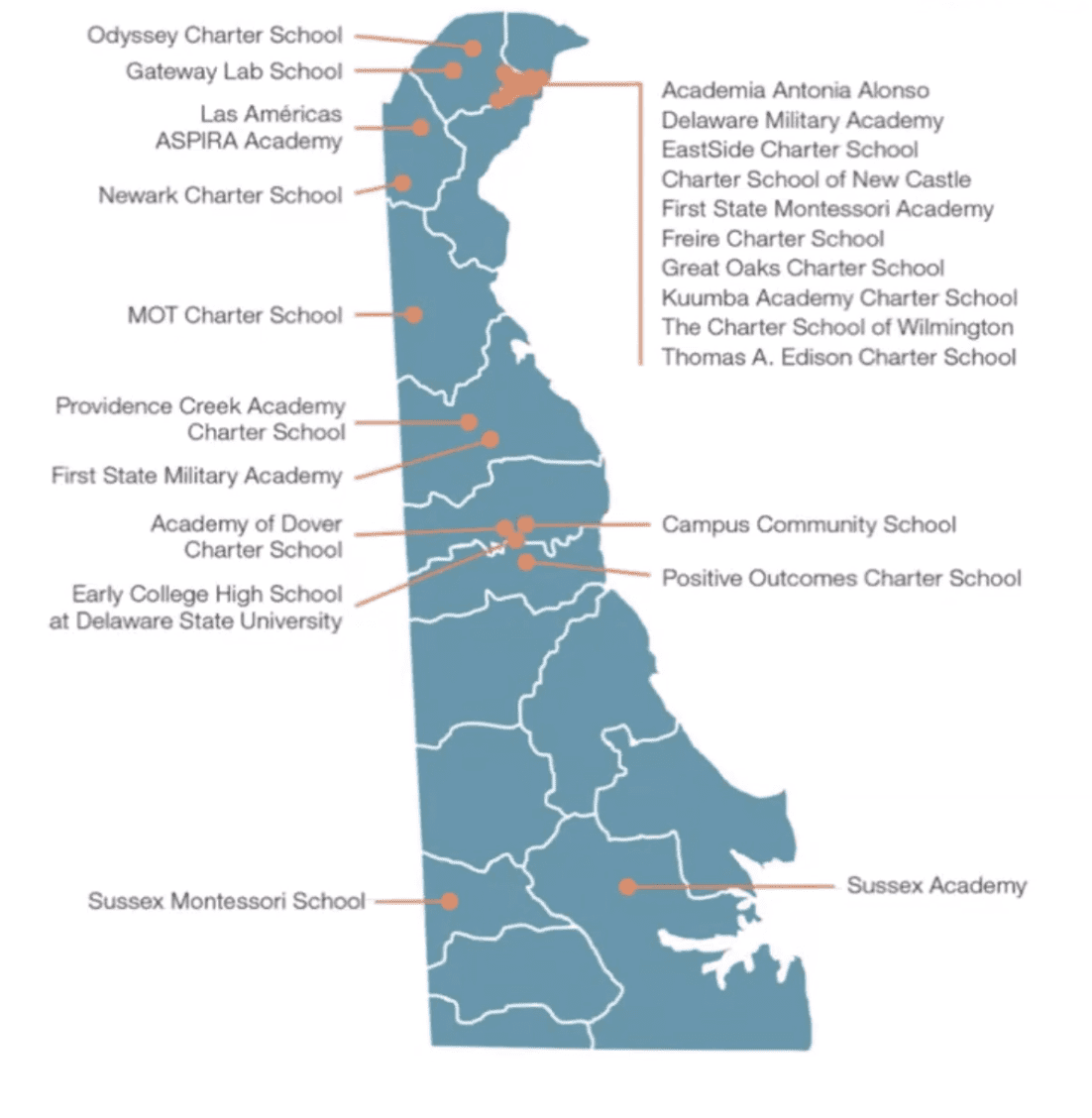

Wednesday’s webinar was meant to engage community members into learning and giving feedback about public education in Delaware.
An organization aiming to reform education in Delaware hosted an informative webinar Wednesday that painted a picture of a poor return on investment, the importance of a successful education system, the need to engage with legislators and more.
First State Educate’s chief strategy and operating officer Julia Keleher hosted the virtual meeting, which also tried to get the sense of how the public feels about the state of education in Delaware through polls and questions.
When given five options as to why it’s been difficult to improve outcomes in the state’s public schools, inadequate funding, ineffective policies and lack of leadership were tied for the first reason, followed by political interests.
“In our opinion, it is all of the above,” Keleher said. “This is a systems issue, and it’s multi-faceted. We’re not going to find just one solution, we’re not going to find one strategy that’s going to address all the things that need to be modified in order for the public school system to do what we want it to do for children.”
So, First State Educate offered a list of synergetic strategies:
- Educate and mobilize (grass roots and grass tops)
- Influence and inform (legislation and policies)
- Incubate and replicate (innovative practices and successful models)
- Track and disseminate (implementation progress and student outcomes)
Among well-discussed problems like inadequate funding for students with special needs, low-income students and English language learners, Keleher presented the daunting proficiency data that have led to many education leaders in the state describing the current school system as a “crisis.”
While Delaware spends $17,034 per pupil in schools – which is top 15% and higher than the national average of $15,446 – it is in the bottom 5% of states in the National Assessment of Educational Progress (NAEP) test.
That exam is the largest nationally representative and continuing assessment of what students in public and private schools in the United States know and are able to do in various subjects.
It tests students in grade four, eight and 12.
“Massachusetts is spending nearly the same, but yet in terms of achievement, they’re ranked number one in the nation,” Keleher said.
She pointed out students who are Black or Hispanic are struggling even worse on the standardized tests.
About 25% of public schools in Delaware report proficiency scores of 20% or less.
This means a whopping 80% of the students cannot perform on grade-level, Keleher highlighted.
The audience was then asked what can be done to improve outcomes in schools.
Their answers included:
- Change funding formula
- Focusing on future careers
- Equity
- Activism
- Restructure from ground up
- Training
- Connections
- More early intervention
- Going back to basics
- Family engagement
Another answer was to reduce regulations.
While there have been a slew of education bills passed and put into law by the state General Assembly in recent years, Keleher presented a slide just with the bills the legislature is considering. None have been enacted yet.
In just four months, there have been 18 proposed bills introduced from January to April of this year.
The bills range from topics like conditions of teaching, district governance, employee benefits and rights, student welfare and equity, health and social services and more.
More than 80% of the audience voted that this proposed legislation does not reflect a sufficient focus on student achievement. The others voted “not sure” and not a single person voted “yes.”
“The takeaway here is if we want to see more legislation that’s focused on student outcomes, then we need to write to our legislators,” Keleher said. “because if that table doesn’t reflect what we think should be there, the constituents, the stakeholders, the citizens, are who let the elected officials know, ‘This is my voice’.”
She repeatedly said it’s not beneficial to point the finger at a school employee or a legislature, and the failure in Delaware public education isn’t necessarily someone’s fault.
“But it’s our collective challenge,” she said.
First State Educate states there are five levers for change in Delaware’s schools.
- District leadership
- Accountability structures
- State and local policy
- Resource allocations
- Conditions of teaching and learning
The majority of the audience voted that conditions of teaching and learning is the lever of change they can help with the most, followed by resource allocations and state and local policy.
Some general statistics were presented on the foundation of the state’s school system: there are 142,156 students in public schools, 15 kindergarten through grade 12 school districts, three vocational districts, 196 total traditional public schools and 23 charter schools.
Keleher noted that there is an uneven geographical distribution of charters.
“As you move down in the state you can see that there’s less access [to charter schools] and that has implications for school choice,” she said.
There’s an abundance of charter schools in New Castle County, so a family all the way down state might have limited school choice options.
The health of Delaware’s schools also has financial implications.
“It’s also written for the business community who’s trying to expand business and bring new families in,” Keleher said. “If families won’t relocate to Delaware because the public school system is not providing an adequate education for their child, that has a huge impact on the economic development of the state and all of our well-being.”
Keleher wrapped up the webinar by talking about the importance of voting in the May 14 school board elections.
First State Educate has four virtual forums this year for voters to get to know the candidates:
- Christina School District: Monday, April 22 from 6 p.m. to 7 p.m.
- Appoquinimink School District: Tuesday, April 23 from 6 p.m. to 7:30 p.m.
- Red Clay Consolidated School District: Tuesday, April 30 from 6 p.m. to 7 p.m.
- Colonial School District: Wednesday, May 1 from 6 p.m. to 7 p.m.
Register for the meetings here.


Raised in Doylestown, Pennsylvania, Jarek earned a B.A. in journalism and a B.A. in political science from Temple University in 2021. After running CNN’s Michael Smerconish’s YouTube channel, Jarek became a reporter for the Bucks County Herald before joining Delaware LIVE News.
Share this Post







